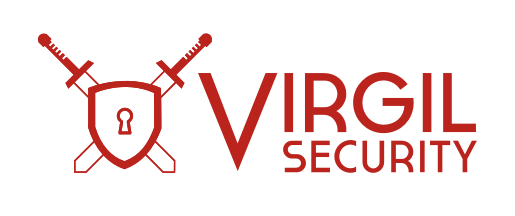Introduction | Features | Installation | Usage Examples | Samples | License | Docs | Support

The E3Kit allows developers to get up and running with Virgil API quickly and add full end-to-end security to their existing digital solutions to become HIPAA and GDPR compliant and more.
- Strong end-to-end encryption with authorization
- One-to-one and group encryption
- Files and stream encryption*
- Recovery features for secret keys
- Strong secret keys storage, integration with Keychain
- Integration with any CPaaS providers like Nexmo, Firebase, Twilio, PubNub, etc.
- Public keys cache features*
- Access encrypted data from multiple user devices
- Easy setup and integration into new or existing projects
- One-to-one channel with perfect forward secrecy using the Double Ratchet algorithm*
* not available in the Flutter implementation yet.
Virgil E3Kit for Flutter is a wrapper of E3Kit for Swift/Objective-C and E3Kit for Android done via Platform Channels. Click the links to see details about the underlying implementations.
In the pubspec.yaml of your flutter project, add the following dependency:
dependencies:
...
e3kit:
git:
url: git://github.com/cardoso/virgil-e3kit-flutter.gitPS: Flutter seems to create the iOS project with deployment target 8. Change it to 9. After that, you can run pod install in the iOS folder.
In your library add the following import:
import 'package:e3kit/e3kit.dart';For help getting started with Flutter, view the online documentation.
Use the following lines of code to authenticate user.
import 'package:e3kit/e3kit.dart';
// initialize E3Kit
final eThree = await EThree.init(identity, tokenCallback);
await eThree.register();Virgil E3Kit lets you use a user's Private Key and their Card to sign, then encrypt text.
import 'package:e3kit/e3kit.dart';
// TODO: init and register user (see Register User)
// prepare a message
final messageToEncrypt = "Hello, Alice and Den!"
// Search user's Cards to encrypt for
final users = await eThree.findUsers(['Alice', 'Den']);
final encryptedMessage = await eThree.encrypt(messageToEncrypt, users);Decrypt and verify the signed & encrypted data using sender's public key and receiver's private key:
import 'package:e3kit/e3kit.dart';
// TODO: init and register user (see Register User)
// Find user
final users = await eThree.findUsers([bobUID]);
// Decrypt text and verify if it was really written by Bob
final originText = await eThree.decrypt(encryptedText, users[bobUID]);In order to enable multidevice support you need to backup Private Key. It will be encrypted with BrainKey generated from password and sent to Virgil Cloud.
await eThree.backupPrivateKey(userPassword)After the private key is backed up you can use restorePrivateKey to load and decrypt the Private Key from Virgil Cloud.
await eThree.restorePrivateKey(userPassword)You can find the sample application here:
| Sample type |
|---|
Basic Sample |
You can run and study the demo to see how to initialize the SDK, register users and encrypt messages using E3Kit.
This library is released under the 3-clause BSD License.
Our developer support team is here to help you. Find out more information on our Help Center.
You can find us on Twitter or send us email [email protected].
Also, get extra help from our support team on Slack.